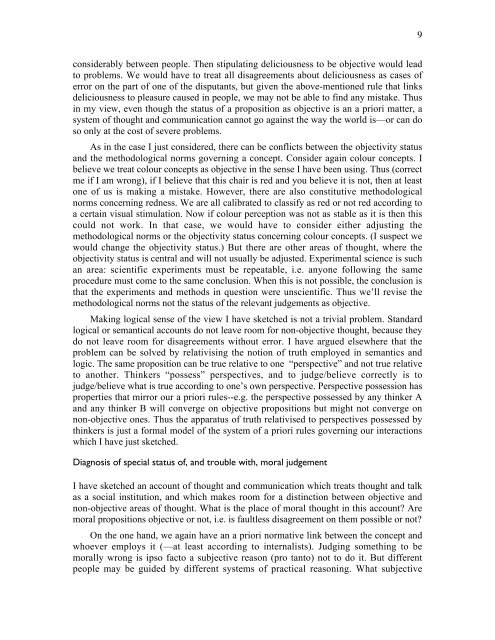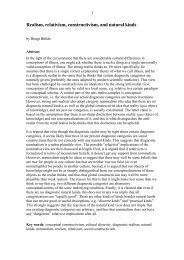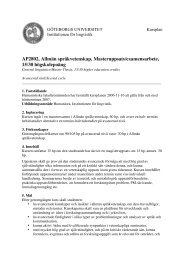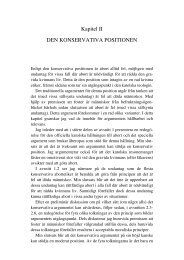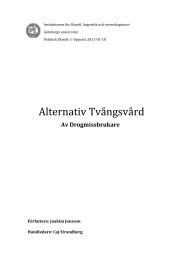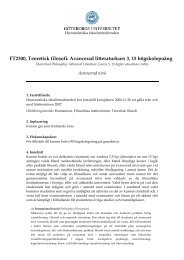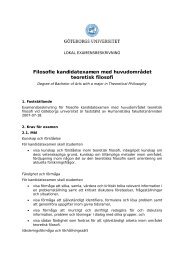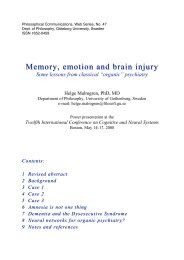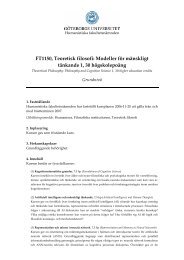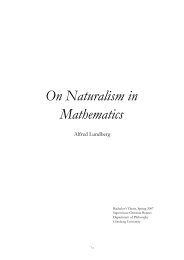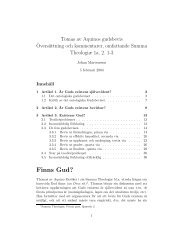Moral Relativism
Moral Relativism
Moral Relativism
- No tags were found...
Create successful ePaper yourself
Turn your PDF publications into a flip-book with our unique Google optimized e-Paper software.
9considerably between people. Then stipulating deliciousness to be objective would leadto problems. We would have to treat all disagreements about deliciousness as cases oferror on the part of one of the disputants, but given the above-mentioned rule that linksdeliciousness to pleasure caused in people, we may not be able to find any mistake. Thusin my view, even though the status of a proposition as objective is an a priori matter, asystem of thought and communication cannot go against the way the world is—or can doso only at the cost of severe problems.As in the case I just considered, there can be conflicts between the objectivity statusand the methodological norms governing a concept. Consider again colour concepts. Ibelieve we treat colour concepts as objective in the sense I have been using. Thus (correctme if I am wrong), if I believe that this chair is red and you believe it is not, then at leastone of us is making a mistake. However, there are also constitutive methodologicalnorms concerning redness. We are all calibrated to classify as red or not red according toa certain visual stimulation. Now if colour perception was not as stable as it is then thiscould not work. In that case, we would have to consider either adjusting themethodological norms or the objectivity status concerning colour concepts. (I suspect wewould change the objectivity status.) But there are other areas of thought, where theobjectivity status is central and will not usually be adjusted. Experimental science is suchan area: scientific experiments must be repeatable, i.e. anyone following the sameprocedure must come to the same conclusion. When this is not possible, the conclusion isthat the experiments and methods in question were unscientific. Thus we’ll revise themethodological norms not the status of the relevant judgements as objective.Making logical sense of the view I have sketched is not a trivial problem. Standardlogical or semantical accounts do not leave room for non-objective thought, because theydo not leave room for disagreements without error. I have argued elsewhere that theproblem can be solved by relativising the notion of truth employed in semantics andlogic. The same proposition can be true relative to one “perspective” and not true relativeto another. Thinkers “possess” perspectives, and to judge/believe correctly is tojudge/believe what is true according to one’s own perspective. Perspective possession hasproperties that mirror our a priori rules--e.g. the perspective possessed by any thinker Aand any thinker B will converge on objective propositions but might not converge onnon-objective ones. Thus the apparatus of truth relativised to perspectives possessed bythinkers is just a formal model of the system of a priori rules governing our interactionswhich I have just sketched.Diagnosis of special status of, and trouble with, moral judgementI have sketched an account of thought and communication which treats thought and talkas a social institution, and which makes room for a distinction between objective andnon-objective areas of thought. What is the place of moral thought in this account? Aremoral propositions objective or not, i.e. is faultless disagreement on them possible or not?On the one hand, we again have an a priori normative link between the concept andwhoever employs it (—at least according to internalists). Judging something to bemorally wrong is ipso facto a subjective reason (pro tanto) not to do it. But differentpeople may be guided by different systems of practical reasoning. What subjective


